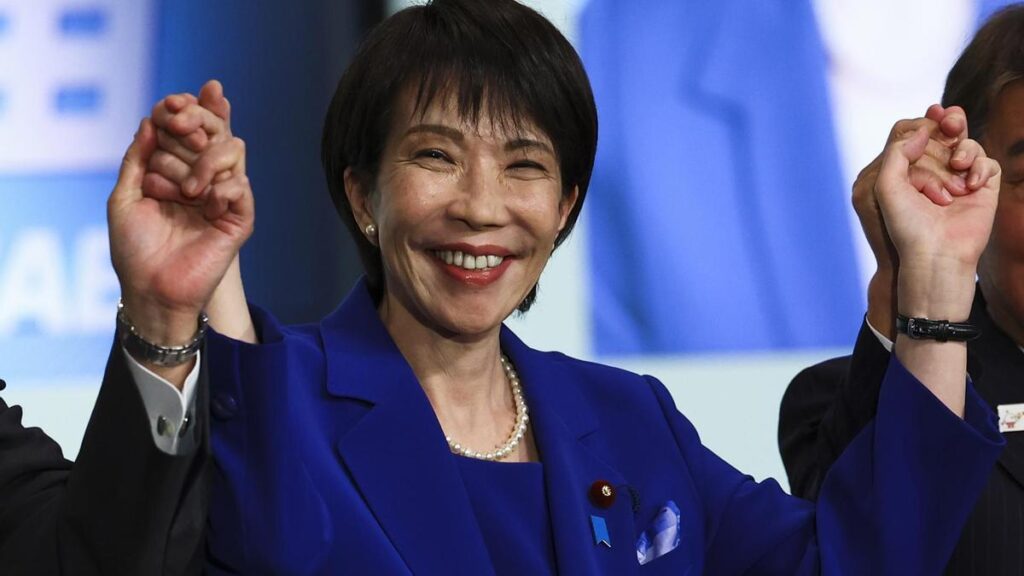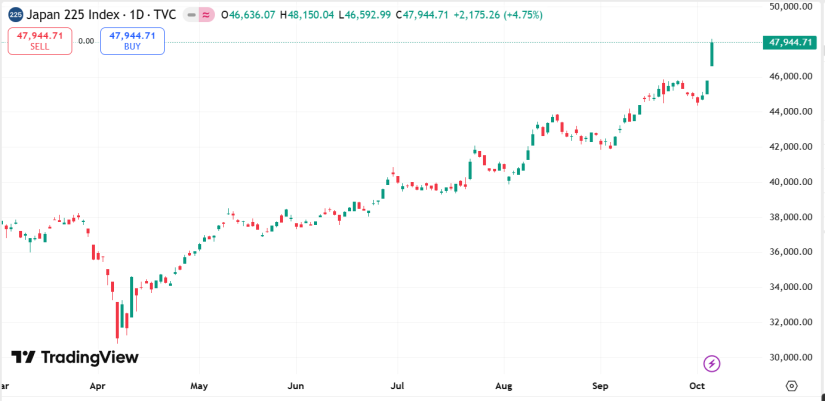TL;DR
- Sanae Takaichi’s election pushed the Nikkei to a record high of 47,734.04 points and makes her the first woman to serve as Japan’s prime minister.
- Takaichi proposes low interest rates, tax cuts, and significant public spending, combining flexible monetary policies aimed at stimulating the economy amid a weakened yen.
- Japanese investors increased cryptocurrency purchases following the election, while the Financial Services Agency (FSA) is advancing plans to reclassify cryptocurrencies as financial products.
Sanae Takaichi’s election drove the Nikkei to a record 47,734.04 points after a 4.75% gain on Monday, following her Saturday victory. She will take office on October 15, becoming Japan’s first female prime minister.
What Does Takaichi Propose?
Takaichi supports pro-growth policies that combine low interest rates, tax cuts, and a large-scale public spending package. During her campaign, she was the only candidate to simultaneously propose increased spending and explicitly call for more monetary flexibility. Voters and markets responded positively to these proposals in the context of a weakening yen.
Her public record also shows a favorable stance toward technological innovation. In 2019, she endorsed the legality of cryptocurrency donations to politicians, interpreting that such contributions were not subject to the same disclosure rules as cash or securities donations under Japan’s Political Funds Control Act. This precedent reflects her willingness to differentiate regulatory treatment for digital assets.
Japan Moves Toward Enabling Crypto ETFs
The local market is already showing clear changes in risk appetite: Japanese investors increased cryptocurrency purchases after the election, driving Bitcoin to new highs against the yen. Analysts associated with decentralized platforms, such as Charles d’Haussy of the dYdX Foundation, note that expectations of looser monetary policies and a more open regulatory approach are likely to strengthen demand for digital assets among both retail and institutional investors.
At the same time, Japanese regulators are advancing toward a more integrated framework. In June, the Financial Services Agency proposed reclassifying cryptocurrencies as financial products under the Financial Instruments and Exchange Act, enabling the launch of crypto ETFs and applying a 20% tax on digital asset income. The initiative aims to integrate cryptocurrencies into the traditional financial market and facilitate the introduction of regulated investment vehicles













